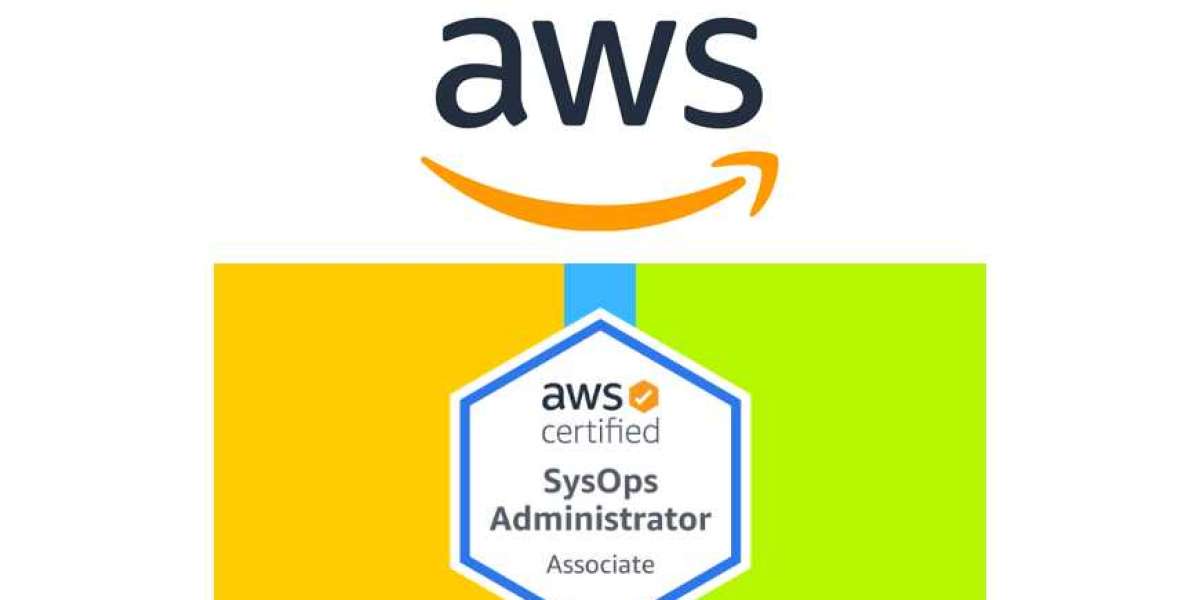In today’s digital era, cloud computing is one of the fastest-growing technologies, transforming how businesses operate and manage their IT infrastructure. Amazon Web Services (AWS), a pioneer in cloud services, is at the forefront of this revolution. For professionals aiming to enhance their career prospects, taking AWS courses can provide essential skills to manage, deploy, and secure cloud-based solutions.
In this article, we’ll explore the different types of AWS courses, their benefits, and how they can pave the way for a successful career in cloud computing.
Why AWS?
AWS offers over 200 fully-featured services, ranging from computing power and storage to artificial intelligence and Internet of Things (IoT). Whether you're looking to start your career or advance it, learning AWS opens up numerous opportunities across various industries. Here are some compelling reasons why AWS is the cloud platform to master:
Market Leader in Cloud Computing: AWS is the largest cloud service provider, commanding a significant market share. Major companies like Netflix, Samsung, and Spotify use AWS for their cloud infrastructure, making AWS skills highly sought after.
High Demand for AWS Professionals: As more businesses move to the cloud, the demand for AWS-skilled professionals is growing exponentially. According to several reports, AWS certification is one of the most valuable in the tech world, with salaries increasing by up to 25% compared to non-certified peers.
Scalability and Flexibility: AWS's services are designed to scale based on business needs, making it a key tool for both startups and large enterprises. Learning AWS means understanding how to efficiently handle scaling, cost management, and optimizing infrastructure.
Global Reach: With data centers worldwide, AWS allows businesses to deploy services globally with just a few clicks. Mastering AWS means acquiring the skills to manage and configure global cloud deployments effectively.
AWS Certifications: Your Roadmap to Success
AWS offers a range of certifications tailored to various job roles and experience levels. Here’s a breakdown of the primary certifications and the paths they offer.
1. AWS Certified Cloud Practitioner (Foundational)
The AWS Certified Cloud Practitioner certification is an entry-level exam designed for those who are new to cloud computing or want a general understanding of AWS. This certification serves as a stepping stone for more advanced AWS certifications and covers basic AWS concepts, services, security, and pricing.
Who Should Take This?
- Non-technical professionals in sales, management, or finance who work with AWS.
- Individuals new to cloud computing and AWS.
Key Topics Covered:
- Cloud fundamentals
- AWS core services (EC2, S3, RDS, etc.)
- Basic security and compliance
- AWS pricing models and support plans
2. AWS Certified Solutions Architect – Associate
The Solutions Architect – Associate certification is ideal for professionals looking to design and deploy scalable systems on AWS. This certification emphasizes best practices for architecting secure, cost-effective, and scalable solutions on AWS.
Who Should Take This?
- IT professionals with some experience in AWS who want to architect cloud solutions.
- Developers and system administrators interested in learning cloud design best practices.
Key Topics Covered:
- AWS architectural design principles
- Managing compute and storage on AWS
- Designing resilient architectures
- Implementing security controls in AWS
3. AWS Certified Developer – Associate
The AWS Certified Developer – Associate certification is designed for developers who build, deploy, and maintain applications on the AWS platform. It focuses on AWS SDKs, Lambda, DynamoDB, and other core services used in application development.
Who Should Take This?
- Software developers interested in building cloud-native applications.
- Developers with some AWS experience looking to deepen their knowledge.
Key Topics Covered:
- Using AWS SDKs to interact with AWS services
- Deploying applications using CI/CD pipelines
- Monitoring application performance with CloudWatch
- Security best practices for application development
4. AWS Certified SysOps Administrator – Associate
This certification is aimed at system administrators responsible for managing AWS environments. The SysOps Administrator – Associate exam covers deployment, management, and operations on the AWS platform, focusing on automation, security, and monitoring.
Who Should Take This?
- System administrators and DevOps professionals responsible for AWS operations.
- IT administrators interested in managing cloud resources.
Key Topics Covered:
- Managing AWS infrastructure
- Monitoring and logging systems with CloudWatch
- Automation using AWS CLI and SDKs
- Troubleshooting AWS environments
5. AWS Certified Solutions Architect – Professional
The Solutions Architect – Professional certification is for experienced architects who design large-scale, complex cloud architectures. It covers advanced topics like multi-tier applications, hybrid cloud environments, and disaster recovery strategies.
Who Should Take This?
- Senior IT professionals and architects with extensive experience in AWS.
- Solutions architects who want to design complex AWS deployments.
Key Topics Covered:
- Advanced cloud architecture design
- Hybrid IT architectures
- Disaster recovery and backup strategies
- Cost management and optimization on AWS
6. AWS Certified DevOps Engineer – Professional
This certification is for professionals in DevOps roles who automate the testing and deployment of applications on AWS. The DevOps Engineer – Professional exam covers continuous delivery (CD), infrastructure as code (IaC), and automation of AWS processes.
Who Should Take This?
- Experienced DevOps engineers looking to deepen their AWS expertise.
- IT professionals interested in automating AWS workloads.
Key Topics Covered:
- Continuous integration/continuous deployment (CI/CD) pipelines
- Infrastructure as code (IaC) using CloudFormation
- Monitoring, logging, and incident response on AWS
- Security automation and governance
7. AWS Specialty Certifications
AWS offers several specialty certifications that focus on niche areas of cloud computing. These certifications include:
- AWS Certified Advanced Networking – Specialty: For professionals focused on networking within AWS.
- AWS Certified Security – Specialty: For security specialists aiming to secure AWS environments.
- AWS Certified Machine Learning – Specialty: For data scientists and machine learning engineers building models on AWS.
Who Should Take These?
- Professionals who want to specialize in specific areas of AWS.
- IT experts seeking to become highly skilled in areas like security, machine learning, or networking.
Top AWS Courses to Consider
Whether you're a beginner or an experienced professional, the following AWS courses can help you prepare for AWS certifications and master the AWS cloud:
1. AWS Certified Solutions Architect – Associate (Udemy)
One of the most popular AWS courses on Udemy, this course is perfect for individuals preparing for the Solutions Architect Associate exam. It covers architecture best practices, security, and cost optimization.
2. AWS Developer – Associate (A Cloud Guru)
A Cloud Guru’s course for the Developer Associate certification provides hands-on labs, quizzes, and real-world scenarios to help you understand how to build applications on AWS.
3. AWS SysOps Administrator – Associate (Coursera)
Coursera offers a detailed course aimed at those preparing for the SysOps Administrator exam. It covers monitoring, automation, and security in AWS environments.
4. AWS Security Specialty (Pluralsight)
For security professionals, Pluralsight offers a comprehensive AWS Security Specialty course covering identity and access management (IAM), encryption, and securing AWS workloads.
5. AWS DevOps Engineer – Professional (LinkedIn Learning)
LinkedIn Learning provides a course designed for experienced DevOps professionals. It covers automation, continuous integration, and infrastructure as code using AWS tools like CloudFormation.
Preparing for AWS Certifications
Earning an AWS certification requires a combination of study and hands-on experience. Here are a few tips to ensure your preparation is effective:
1. Get Hands-On Experience
AWS certifications focus heavily on practical knowledge. Take advantage of AWS’s free tier to practice deploying and managing cloud services.
2. Use AWS Whitepapers and FAQs
AWS offers detailed whitepapers and FAQs for each certification. These resources provide insight into best practices and recommended architectures for AWS services.
3. Join Study Groups
Online communities such as AWS forums, Reddit, and LinkedIn groups are excellent places to exchange knowledge, ask questions, and get feedback on tricky topics.
4. Take Practice Exams
Many online platforms like A Cloud Guru and Whizlabs offer practice exams that mimic the real certification tests. These help you identify areas where you need more focus.
Conclusion: Accelerate Your Career with AWS Courses
AWS certifications are a valuable investment in your career, providing the skills needed to build, manage, and secure cloud infrastructures. With numerous certifications tailored to different career paths—whether you're a developer, system administrator, or architect—AWS offers something for everyone. By choosing the right course and dedicating time to hands-on learning, you'll be well-equipped to succeed in the competitive world of cloud computing.







